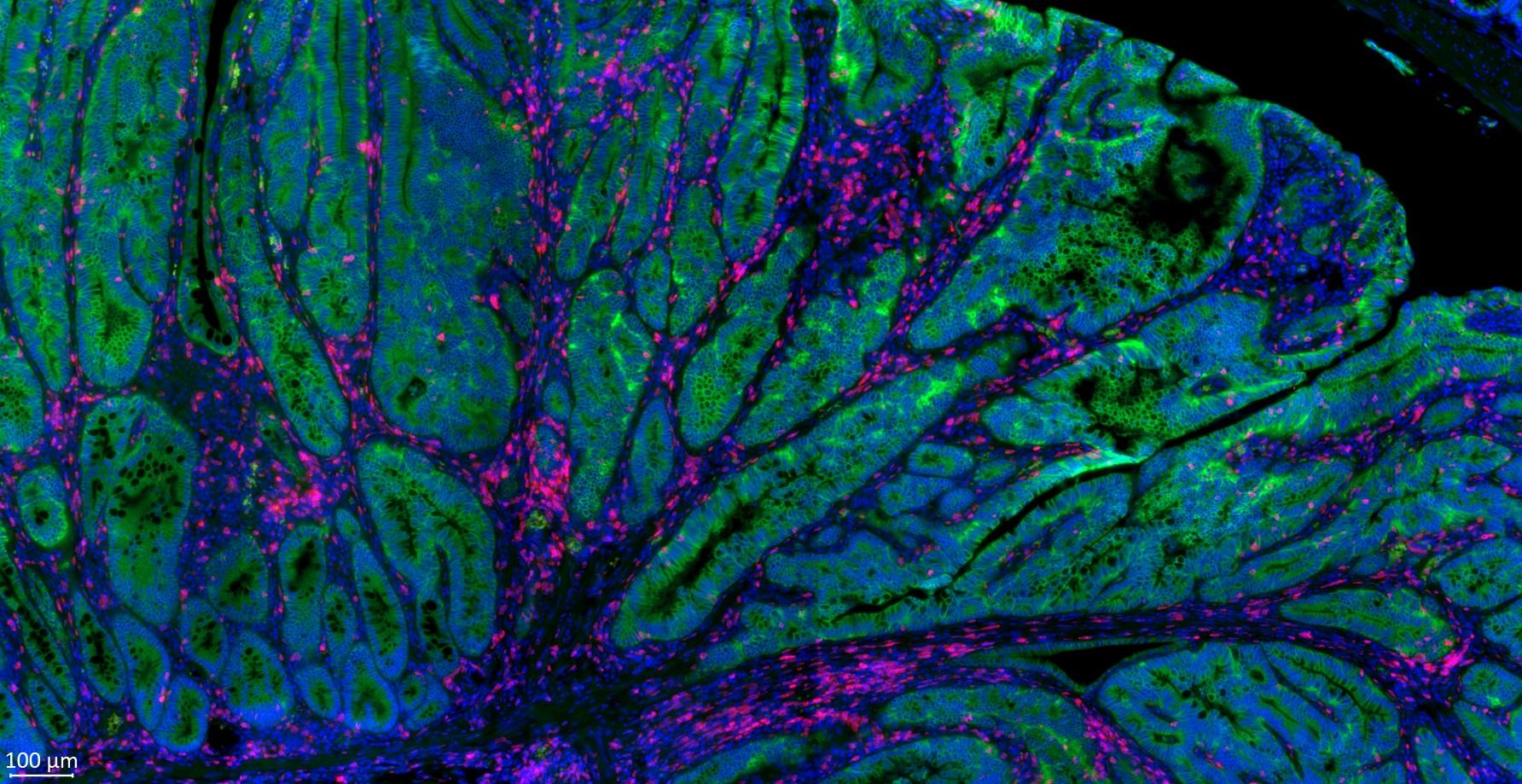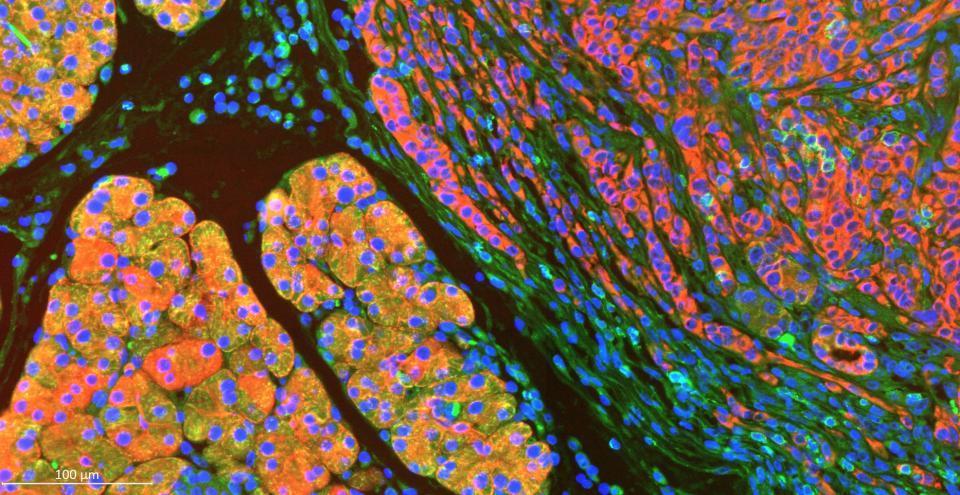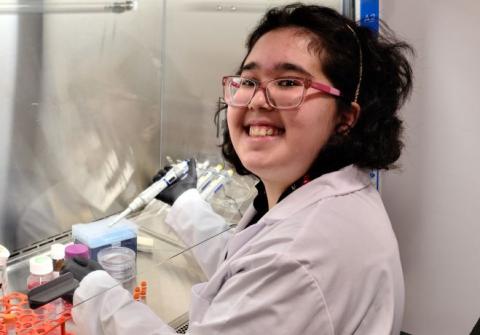Advancing Precision Oncology Through Genetics, Immunology, and Innovation
Research Overview
The Siolas Lab is dedicated to uncovering how genetic changes and the immune system influence cancer development, progression, and response to therapy. We focus on some of the most challenging cancers—including colorectal and pancreatic cancer—and combine laboratory research, clinical studies, and computational tools to find new ways to improve patient outcomes. By identifying how tumors evade the immune system and predicting who is at risk for relapse, we work toward building personalized, more effective cancer treatments for the future.
Colorectal Cancer
Our lab studies how genetic changes within colorectal tumors, and the immune cells that surrounds them, influence cancer growth, recurrence, and response to therapy. We recently identified genomic signatures that help predict which patients are more likely to experience a return of their cancer after surgery (Annals of Surgical Oncology, 2025). We also demonstrated that combining immunotherapy with surgery can significantly improve outcomes for patients with MSI-H colon cancer that has spread inside the abdomen (Cancers, 2025). In addition, we contributed to a clinical trial testing immunotherapy in patients with colorectal cancer that typically does not respond to immune-based treatments (Oncogene, 2023). Together, these efforts improve our understanding of how tumor genetics and the immune system shape treatment success—and advance our goal of developing more personalized therapies that extend survival for patients with colorectal cancer.

Pancreatic Cancer
Our research focuses on how key genetic mutations in pancreatic cancer shape the tumor’s immune environment and influence how cancers grow and respond to treatment. We have shown that different forms of mutant KRAS have distinct clinical and biological behaviors, helping explain why some pancreatic tumors are more aggressive (Cancer Cell, 2024). We also discovered that specific TP53 mutations promote the buildup of inflammatory cells such as neutrophils, which can shield tumors from immunotherapy and contribute to treatment resistance (Cell Reports, 2021). In addition to studying genetic drivers, we investigate how pancreatic tumors adapt their metabolism to survive treatment. Our work demonstrated that immune cells called macrophages process the chemotherapy drug nab-paclitaxel in a way that can alter its effectiveness (Cancer Immunology Research, 2017). We further reviewed how targeting these metabolic and immune vulnerabilities could open new therapeutic opportunities for patients (Journal of Pancreatology, 2020). By uncovering how tumor genetics and the surrounding immune microenvironment interact, our long-term goal is to develop more precise and effective treatments that improve survival for people facing pancreatic cancer.

Precision Oncology and Computational Approaches
We use advanced genomic profiling and artificial intelligence tools to better understand how tumors behave and to help guide the most effective treatments for each patient. Our team has developed and validated genomic classifiers that can predict which patients with early-stage colon cancer are at higher risk for recurrence after surgery (Annals of Surgical Oncology, 2025). We also apply natural language processing (NLP) to large sets of real-world medical data, enabling the identification of high-risk bladder cancer patients who may benefit from closer monitoring or tailored therapies (JCO Clinical Cancer Informatics, 2023). Expanding beyond colorectal and bladder cancer, we are advancing personalized treatment strategies for pancreatic neuroendocrine tumors. This includes examining new imaging-based and targeted “theranostic” approaches (NPJ Precision Oncology, 2025) and studying circulating tumor DNA as a non-invasive biomarker to track response to peptide receptor radionuclide therapy (PRRT) (JCO Precision Oncology, in revision). By integrating genomics, computational science, and clinical data, our goal is to make cancer care more precise and more responsive to the needs of each individual patient.




